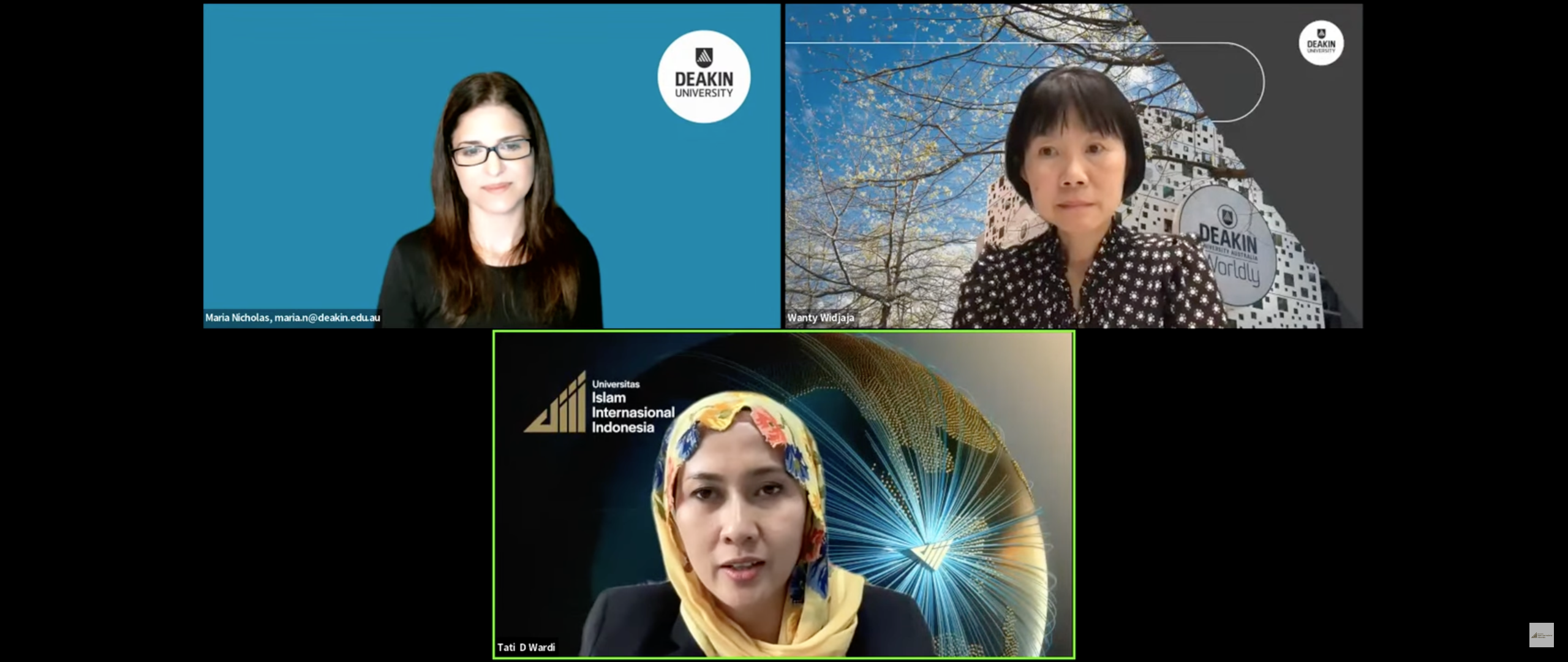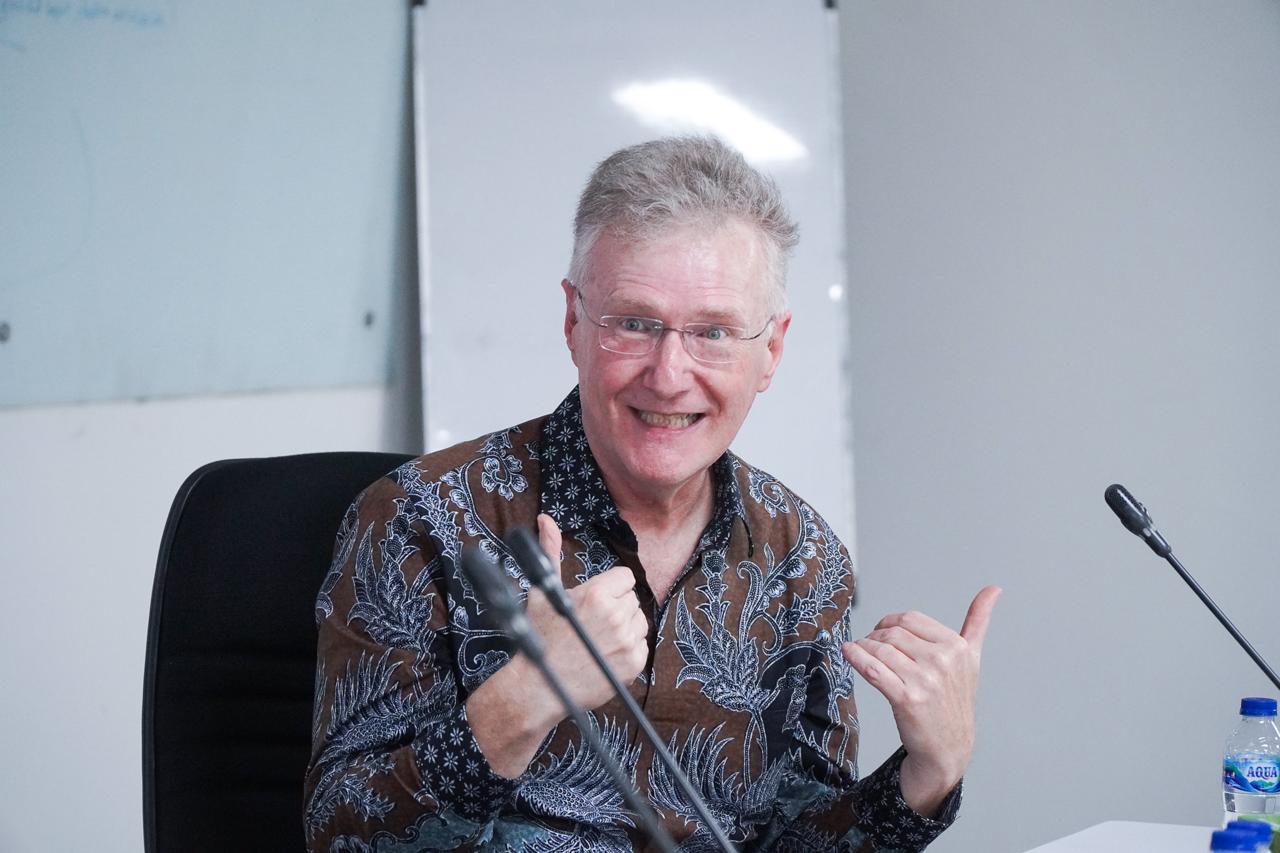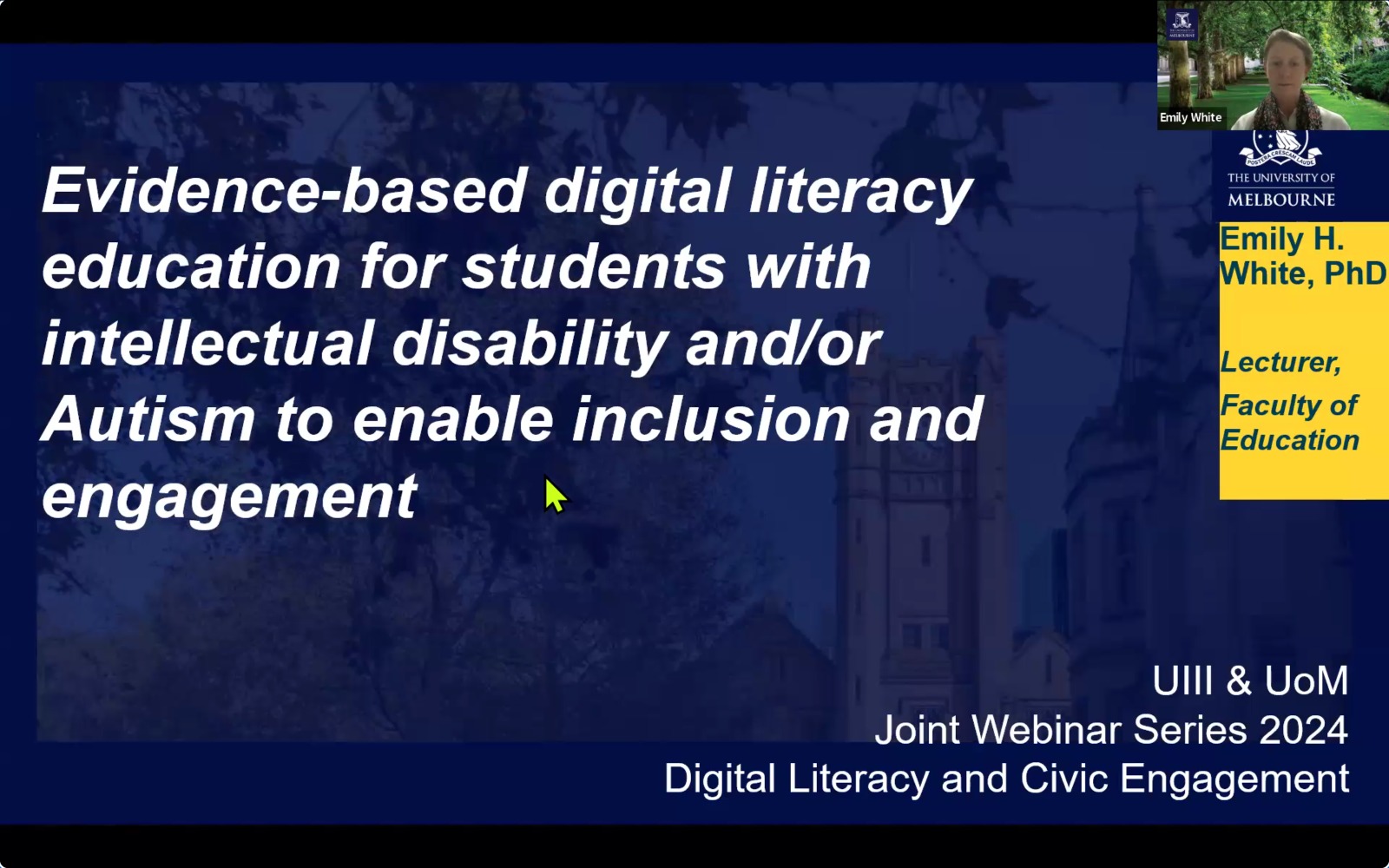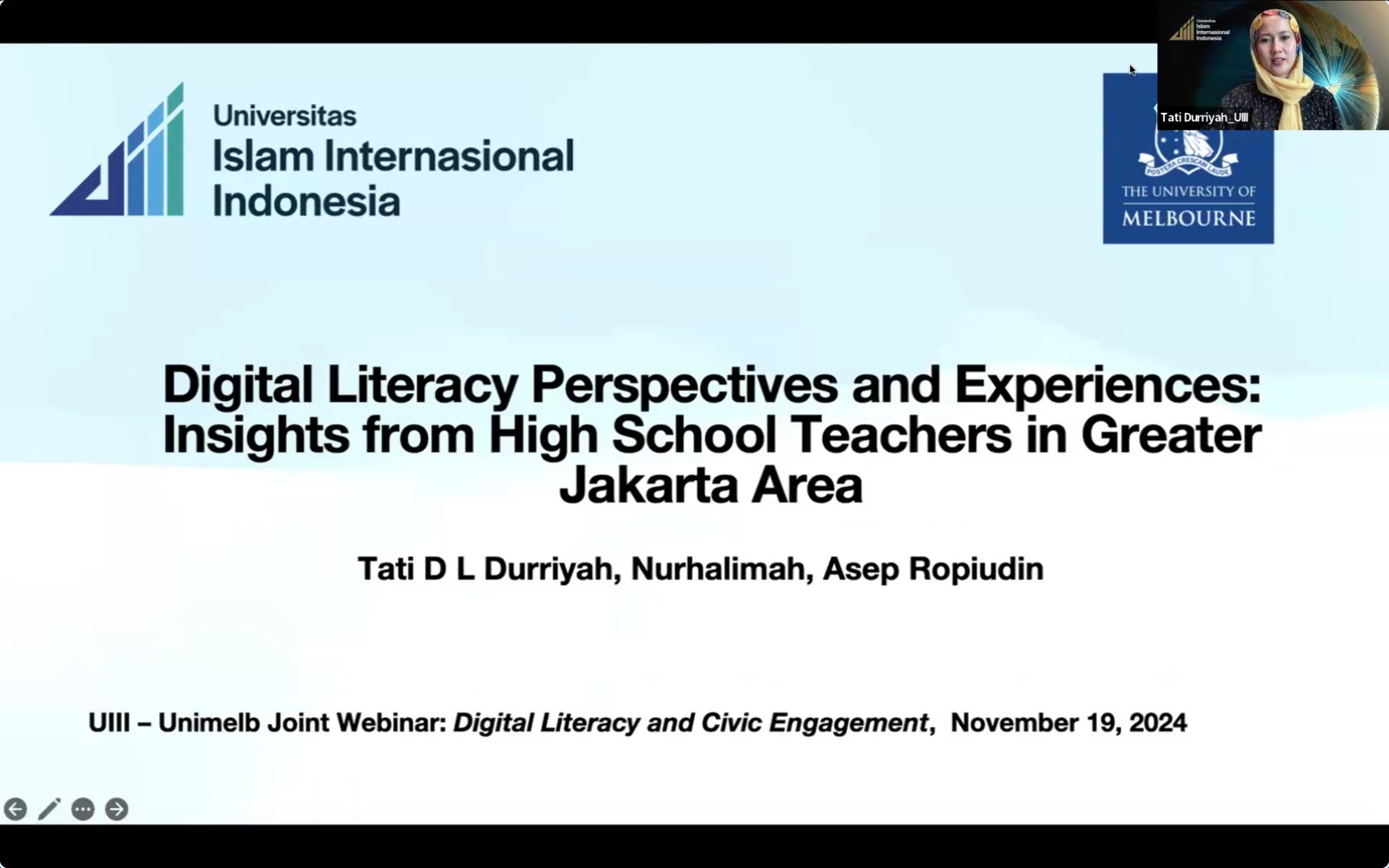Innovative Literacy Teaching Approaches from Indonesian and Australian Classrooms
June 22, 2023Contributors: Maroof Ahmed | Editor: Supriyono
 In collaboration with Deakin University, Australia, the Faculty of Education at Universitas Islam Internasional Indonesia (UIII) held a webinar on "Innovative Approaches in Literacy Teaching" on May 23, 2023, addressing the approaches used by teachers
to enhance literacy in both Indonesian and Australian classrooms.
In collaboration with Deakin University, Australia, the Faculty of Education at Universitas Islam Internasional Indonesia (UIII) held a webinar on "Innovative Approaches in Literacy Teaching" on May 23, 2023, addressing the approaches used by teachers
to enhance literacy in both Indonesian and Australian classrooms.
Dr. Tati D. Wardi, Head of MA in Education at UIII, and Dr. Maria Nicholas, a Senior Lecturer in Education at Deakin University spoke at the event moderated by Assoc Prof. Wanty Widjaja, the Associate Head of School (International & Engagement), School of Education, Faculty of Art & Education, Deakin University.
Dr. Wardi shared the research that she conducted with her team revolving around literacy instruction in Indonesian classrooms. She explained that her research aligned with the Indonesian government's recent emphasis on the critical role of children's literature in fostering literacy skills and nurturing book appreciation.
"While it's not the first time that the government has recognized the importance of children's literature in literacy teaching, it is only now that they have placed children's literature at the heart of literacy instruction," she explained.
The study led by Dr. Wardi sought to examine how National Literacy Master Teachers integrated children's literature into their literacy classrooms, with a focus on innovative teaching methods. The research process was elaborate, involving the collection of student artifacts over a period of four months and providing physical books to teachers for consistency during classroom instruction.
“During our research, we observed that most teachers implemented read-aloud activities. While there were some variations in how we define interactive read-aloud, it is crucial to highlight the significance of [its] interactive elements […] This involves the teacher reading the text aloud, asking students questions, and engaging them in discussions,” she explained.
Moreover, Dr. Wardi highlighted the importance of diversity in book selection, revealing that teachers used diverse literature to facilitate sensitive discussions and complex issues including absenteeism, gender equality, and individual differences.
"Our research indicates that teachers greatly benefited from using children's books to discuss challenging classroom issues; however, to fully realize these benefits, teachers must encourage authentic student responses by facilitating interactive read-aloud," Dr. Tati concluded.
On the other side of the discussion, Dr. Maria Nicholas shared her insights about the interactive technology-based facility used by her second-year initial teacher education students at Deakin University. This facility, known as the “Nyaal”, comprising a think tank, offers an immersive experience in understanding teaching practices and theories.
"The Nyaal room resembles a circular movie theater, and the think tank is where we gather to discuss and analyze the theories and expectations," Dr. Nicholas explained. She emphasized that the facility, particularly the 360-degree viewing room in the Nyaal, allows for live observation and understanding of different teaching practices.
In terms of the curriculum, Dr. Nicholas said that the second-year unit focuses on teacher practices related to reading and writing, while the first-year concentrates more on content and oral language development. In this regard, teaching practices are viewed as socially established cooperative human activities, encompassing specific sayings, doings, interactions, and relationships.
“In the 360-degree viewing room, we observe these practices in action and then discuss them in the think tank. The main teaching approaches we examine are centered around the gradual release of responsibility, particularly modeled reading, shared reading, guided reading, collaborative reading, and independent reading. Teachers fluidly transition between these approaches, which we aim to unpack within our unit,” she said.
The feedback received from students engaging with this innovative facility was overwhelmingly positive. "The students expressed their appreciation for the opportunity to witness actual classroom practices. They felt like 'flies on the wall' and appreciated the authentic behavior of the students during the lesson," Dr. Nicholas explained.
Both esteemed scholars emphasized the significance of innovation in literacy teaching through integrating diverse children's literature and employing immersive and collaborative learning environments. By nurturing a deeper understanding of educational practices, these novel approaches seek to enhance the training of future educators and their capacities to promote effective literacy education.
- Call for Papers 2025: FEB UIII Invites Researchers to Explore Muslim World Economy & Sustainability in OIC Countries
- Prof. Dr. Nasaruddin Umar: A Distinguished Profile in Religious Leadership
- Is Indonesia’s Middle Class Collapsing?
- Pedaling to Work, Dr. Lukman’s Message on ‘World Sustainable Transport Day’
- Welcoming the Pilgrim of Hope: Indonesian Muslim Leaders Embrace Pope Francis
- Sheikh Muhammad adh-Dhuwaini: A Recognized Authority in Sharia and Law
- Qurban and Grassroots Innovations Across Indonesia
- Indonesia's Green Qurban Movement
- UIII Productivity Ratio 2023
- Unsung Heroes in Global Trade: Celebrating International Customs Day 2024


